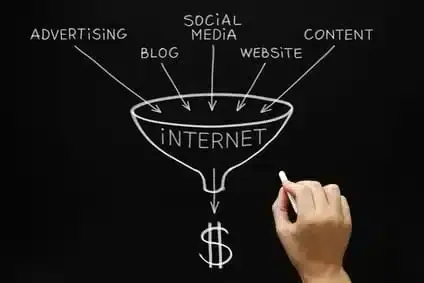Lead scoring is all about finding out whether or not your lead is “Hot or Not” through the process of aligning sales and marketing efforts.
Lead scoring is also an integral part of lead nurturing, helping you determine your prospects level of interest in your company or product.
The end result is to get your lead through the necessary steps to know when they are ready to be released to your sales team. The overall value of lead scoring is priceless, and gives your team the opportunity to focus on selling and less time on qualifying.
How Does Lead Scoring Help Your Business?
According to the Aberdeen Group, lead scoring has enabled best-in-class companies to:
- Average a 32% improvement in forecast accuracy
- Improve overall marketing effectiveness by 31%
- Improve overall sales effectiveness by 30%
- Show measurable leads in lead conversion rates, pipeline thickness, average deal size, and bid-to-win ratios.
“However beautiful the strategy, you should occasionally look at the results.” – Author Unknown
Let’s examine 4 benefits of lead scoring for you and your business.
#1: Give Value to Your Prospects
Scoring leads will help you to know when your leads are ready to be sent to your sales team.
The quantitative score given to each lead will assign an overall value and indicate the potential of the prospect. The score given to each lead (prospect) gives you the ability to configure reports and cumulative point values based on your marketing efforts as well.
The value you receive from lead scoring will save your team time and money.
#2: Know When to Call Leads
The basic framework setup by lead scoring is based on business needs and targets.
Each lead is intended to go through a series of stages to determine when they are ready for a sales call. Based on their score, they move through the stages. Typically the stages include something similar to the below:
- Website Visit (new lead)
- Leads
- Marketing Qualified Leads
- Sales Accepted Leads – at this stage, the lead is ready for a sales call.
- Opportunities
- Customers
#3: Sales Efforts Prioritized
Lead scoring will give your sales team the ability to know where they need to <strong>spend their time</strong>. Your team will be able to focus on the highest scored leads that will ultimately bring you more business.
Sales campaigns can more efficiently be identified by <strong>high scoring leads</strong> and your marketing team will be able to <strong>adjust their goals and strategy</strong> to optimize their efforts.
I’m sure everyone has heard the old business chestnut – it costs 5-7x as much to bring in new customers and clients than to retain old ones. But at some point, you are going to need new customers. Lead scoring helps you reduce new customer acquisition costs by focusing your efforts on the leads best prepared to become customers. You can eliminate wasteful hours calling no-hope prospects and instead spend that time focusing attention on the ready to buy clients. Sounds like a win, right?
#4: Improved Lead Nurturing
Lead nurturing and lead scoring functionality are highly intertwined with one another. Based on their lead score, they will remain in their current stage longer or passed on to the next, ultimately getting closer to being sales ready.
Lead scoring allows you and your team to know which leads or campaigns need to be nurtured more or less based on the amount of time they remain in each stage and by their overall lead score. Your lead nurturing efforts will become more intuitive and accurate.
Final Thoughts
Increased sales efficiency and effectiveness, increased marketing effectiveness and a closer alignment between your sales and marketing team are all added values of lead scoring.
If you yourself aren’t an expert in lead scoring, don’t feel bad, most people aren’t. Look to other professionals for help and guidance to implement your own lead scoring system.
Many marketing automation software programs can more efficiently setup the process for you, and report back on your results. This option will give your sales team more time to do what they are good at; sell.
“Working hard and working smart can be two different things.” – Byron Dorgan
